news
Why court discharged and acquitted Fani-Kayode of money laundering charges

Justice Rita Ofili-Ajumogobia, Wednesday, discharged and acquitted a former Aviation Minister, Femi Fani-Kayode, of money laundering charges.
While reading her judgment which lasted almost 50 minutes, Ms. Ofili-Ajumogobia said that the prosecution, the Economic and Financial Crimes Commission presented “a feeble case” and failed to link Mr. Fani-Kayode with the charged offences.
”It is apparent that the prosecution’s case is feeble and has failed to establish that the accused person paid or accepted cash deposits exceeding the authorised limit and did not do so through a financial institution,” the judge said.
“The prosecution has therefore failed to prove beyond reasonable doubt that an offence had been committed under Section 15(1) of the Money Laundering Prohibition Act (2004).
“I am of the considered view that the accused person, Chief Femi Fani-Kayode, in the absence of copious evidence connecting him to the offence charged ought to be discharged and acquitted of the two surviving counts of the amended charge and I so hold.”
The EFCC had arraigned Mr. Fani-Kayode before Ms. Ofili-Ajumogobia in 2013 on a 40 count amended charge of money laundering amounting to almost N100 million while he was the minister of aviation in 2006.
Last year, the judge struck out 38 of the 40 charges, leaving the prosecution with a two count charge of money laundering of N2.1 million.
The EFCC alleged that N1.1 million and N1 million – amounts exceeding the N500,000 threshold – were paid into the bank account of Mr. Fani-Kayode at the former minister’s behest.
The Commission said that the transactions were done without going through a financial institution.
In her judgment, Ms. Ofili-Ajumogobia said that the prosecution’s fourth witness gave an unreliable testimony.
”Taking cognisance of the fact that the oral testimony of PW4 before this court is at variance with his earlier voluntary submission before the Economic and Financial Crimes Commission, I find unreliable the testimony of PW4 that it was the accused person that gave him money to pay into the latter’s account,” the judge said.
“His testimony before this court seems to be an afterthought, in view of the fact that PW4 who was stated by the prosecution to be at large initially suddenly appeared to give testimony on behalf of the prosecution.
“The law is trite that where there are two or more conflicting testimonies by a witness, such testimony must be discarded by the court.”
The judge also said that the defence witnesses painted a “somewhat coherent but doubtful story” as to how the stated amounts ended up in Mr. Fani-Kayode’s bank account.
”The doubtfulness in the account of the defence lay in the fact that they failed to show that the same money that they referred to were the exact same money PW4 referred to in his testimony,” said the judge.
“I agree with Mr. Keyamo that it was a costly omission for the defence to have failed to cross examine PW4 with respect to the testimony of PW1 and PW2 in order to test the veracity of PW4’s testimony.
“However, I do not agree with Mr. Keyamo for the prosecution that evidence of deposits in the bank account of the accused person without proof is sufficient evidence to show that the latter received cash payments from unknown sources of sums above the statutory threshold of N500,000.
“The fallacy in such argument lies in the fact that it would remain unclear as to whether the accused person received the alleged sum in tranches of at least N500,000 in each case. Is it not possible that the accused person received the cash in lumps of N499,000 or even N300,000 in each case.
“This is so because no offence is committed when the amount received outside the financial institution is less than N500,000.
“There is no doubt, therefore, as widely canvassed by learned counsel for the defence that it is necessary for sufficient and unequivocal evidence to be put before the court as to how and in what manner the money were actually received.”
The judge further stated that since there is insufficient evidence linking the accused person with the ingredients of the offence charged, that the court must discharge him as a matter of law.
On the second element of whether the money was paid into Mr. Fani-Kayode’s bank account on his behest, the judge said that prosecution also failed to prove that he did so.
“It is apt to note that this second element is an offence not by provisions of the money laundering act but rather by the manner in which counts 25 and 26 are framed.
“It is important to make this point because the Money Laundering Act only criminalises financial transactions which are above the threshold when they are not done through a financial institution.
“Ordinarily, the crime would have been proven upon the successful establishment of the first element alone, but the prosecution had introduced the second element in it. And the law requires that the prosecution proves the offence of charge.”
The judge also stated that the confessional statement the prosecution purportedly obtained from Mr. Fani-Kayode is irrelevant as it failed to link him to the charged offences.
“By virtue of summation of the Evidence Act, confessional statements are only admissible when they are voluntary, relevant, direct, legal, unequivocal of the facts required to prove the offence.
“I think that the said confessional statement is too vague, general, and in no way links the accused person to the offence charged. It is irrelevant.
“I have established in the course of this judgment that it is settled fact that the sum of N1.1 million and N1 million were paid to the accused person on the 20th and 29th of September 2006 by PW4.
“What remains unclear is the source of the money and whether it was the accused person that instructed PW4 to make the payments. This is yet another element of doubt that must be resolved in favour of the accused person.”
Mr. Fani-Kayode’s trial saw three judges and four re-arraignment since 2008 when he was first brought before Justice Ramat Mohammed on a 47 count of money laundering.
In 2012, following Mr. Mohammed’s transfer out of the Lagos Judicial Division, Binta Nyako took over the case.
Judge Nyako was also moved out of the Lagos Division in 2013, and the trial re-assigned to Mrs. Ofili-Ajumogobia.
news
Ojomu Royal Family: Forum petitions against Lagos CP over accusations against Tajudeen
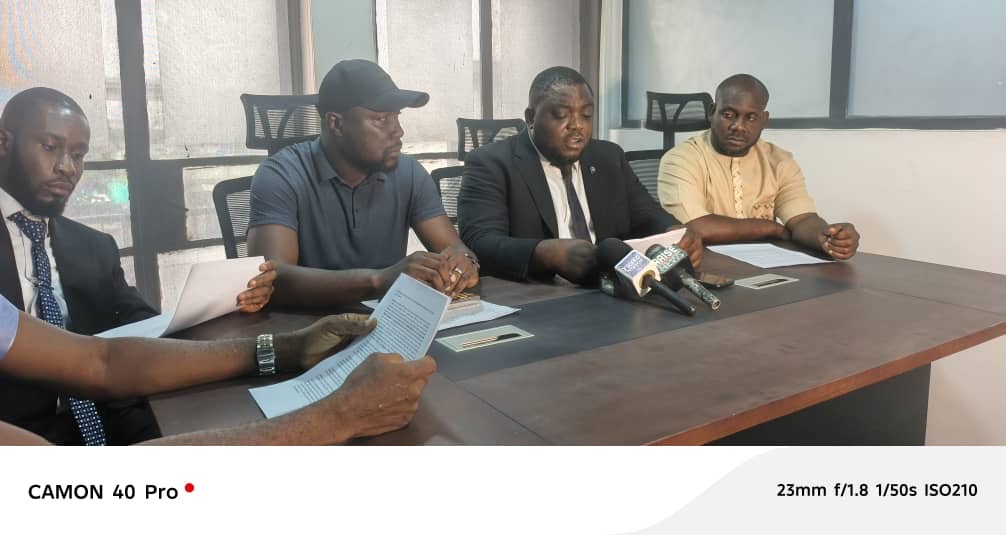
The Youth Forum of Ojomu Royal Family of Ajiran Town in Eti-Osa Local Government Area of Lagos State, has written a petition against the Commissioner of Police in the state, Moshood Jimoh, over the accusations levelled against Hammed Tajudeen.
Speaking at a press briefing in Lagos, the counsel to the Forum, (Adedotun Ajulo, Esq.), said the Lagos State Police Command cannot embark on a media trial in an alleged murder case.
The Forum said the police accused Tajudeen of sponsoring multiple murders without investigation. It stated that at no time was Tajudeen invited by the police for questioning.
It said: “At no time did he refuse or fail to honour any police invitation. At no time was any warrant of arrest issued against him by a court of competent jurisdiction.
“At no time was any judicial authorisation or order obtained to declare him wanted. Despite these concerns, on 20 February 2026, the Commissioner of Police, Lagos State Command, convened a press briefing during which the full image of Alhaji Hammed Tajudeen was displayed and he was publicly accused of sponsoring multiple murders.
“This unilateral and sensational declaration exposed him to public odium, ridicule, and severe reputational harm, all without the benefit of due process or the basic courtesy of an invitation for questioning.
“In the aftermath of the press briefing, hoodlums allegedly sponsored by the opposing parties seized upon the heightened tension to vandalize and destroy properties and assets belonging to Alhaji Hammed Tajudeen, as well as those of other identifiable members of the youth wing who are perceived to be aligned with him.
“These coordinated attacks further underscore the dangerous consequences of deploying the machinery of law enforcement in a manner that inflames communal hostilities rather than preserving public order.
“Subsequently, there has been an overwhelming and intimidating presence of both military personnel and policemen within the community, a development that has served only to further harass, threaten, and denigrate our Clients.
“Meanwhile, the opposing parties continue to enjoy open protection, enabling them to persist in the unchecked dissipation of the community’s common patrimony without resistance or accountability.
“The law is settled. The Administration of Criminal Justice Act, 2015, particularly Section 41, regulates the circumstances under which a citizen may be declared wanted.
“These conditions were not met in this case. Furthermore, the courts have held that the publication of a wanted notice without lawful authority is unconstitutional, illegal, and liable to be set aside.
“We emphasise that our clients are not opposed to lawful investigation. They have consistently cooperated with law enforcement agencies in the past and were previously exonerated after investigations.
“What they strongly oppose is indictment without investigation, trial by media, intimidation, and the use of police machinery to settle private disputes or advance personal interests.
“The issues concerning the Ojomu Royal Family long predate the tenure of the current Commissioner of Police, and it is noteworthy that his predecessors never conducted themselves in a manner suggestive of bias, compromise, or improper influence arising from any promise of advantage or lucre, whether direct or implied.
“Consequently, a formal petition has been submitted against the Lagos State Commissioner of Police and the Lagos State Police Command.
“Among the reliefs sought are the constitution of a special, neutral, and professionally competent investigative team to review the allegations; the prosecution of any persons found to have made false, malicious, or fabricated claims; and a public retraction of the unlawful declaration portraying Alhaji Hammed Tajudeen as a murderer.
“Our Client reiterates his readiness to make himself available for investigation, provided such inquiry is conducted without bias, compromise, or the procedural irregularities presently characterizing the handling of this matter and definitely not by Lagos State Commissioner of Police.
“We trust that the appropriate authorities will urgently intervene to restore confidence in due process, uphold the rule of law, and ensure that policing in Lagos State remains professional, impartial, and accountable.
“More troubling is the fact that such a pronouncement was made in the absence of any invitation, interrogation, or opportunity afforded to Tajudeen to respond to the allegations an omission that gravely offends the tenets of fairness, due process, and responsible policing.
“Furthermore, the conduct of the Commissioner raises serious questions as to whether the machinery of the state is being deployed to settle personal or communal scores rather than to uphold law and order.
“In a democratic society governed by the rule of law, no public officer is permitted to wield statutory powers in a manner that constitutes a media trial or exposes citizens to unwarranted public opprobrium.
“It is against this backdrop that we consider it imperative to address the public and set the records straight, ensuring that the rights and dignity of all parties are preserved while lawful processes are allowed to run their full and proper course.”
news
Maina: Defence Seeks to Quash Charge Before FCT High Court, Alleges Abuse of Court Process
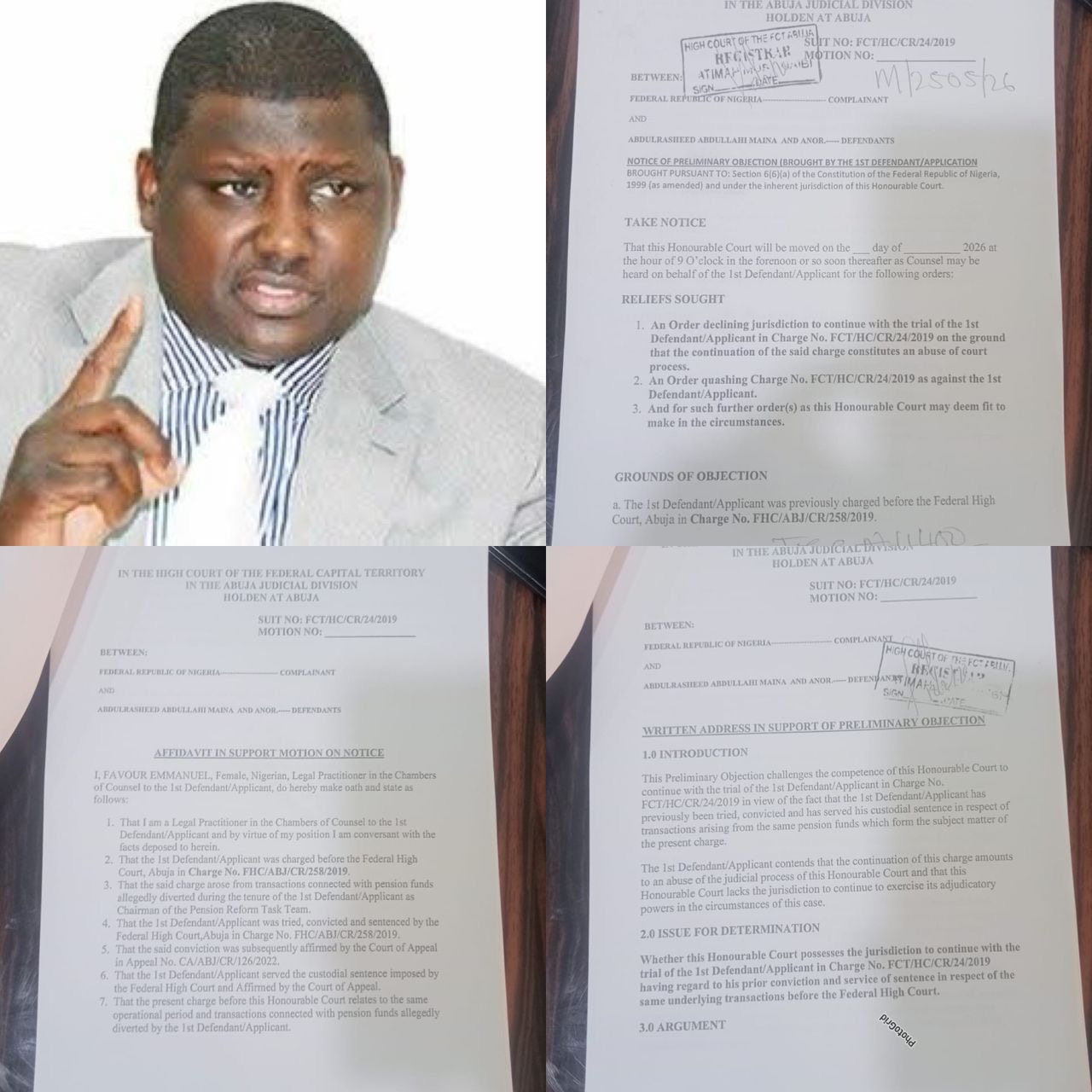
The Defence team representing the former Chairman of the Pension Reform Task Team (PRTT), Dr. Abdulrasheed Abdullahi Maina, has challenged the jurisdiction of the High Court of the Federal Capital Territory (FCT), Abuja, to continue proceedings in Charge No. FCT/HC/CR/24/2019, describing the ongoing prosecution as an abuse of court process.
This follows the filing of a Notice of Preliminary Objection by Counsel to the 1st Defendant, Mr. Emmanuel Umahi Ekwe, supported by an Affidavit and Written Address, urging the Court to decline jurisdiction and quash the charge against the 1st Defendant.
According to the processes filed before the Court, the Defence contends that the present charge arises from the same operational period and transactions relating to pension funds for which the 1st Defendant had previously been tried, convicted, and has served his custodial sentence pursuant to Charge No. FHC/ABJ/CR/258/2019 before the Federal High Court, Abuja.
The Defence maintains that the continuation of the present proceedings after prior conviction and service of sentence in respect of the same underlying transactions amounts to multiple prosecutions arising from the same factual foundation and constitutes an abuse of court process.
In the Written Address filed in support of the objection, Counsel argued that where a proceeding constitutes an abuse of court process, the Court is divested of the jurisdiction to continue with such proceedings, and that the present charge ought to be quashed in its entirety.
The Defence further submitted that the Preliminary Objection raises a fundamental threshold issue as to the competence of the charge before the Court and urged the Court to determine same before taking any further steps in the proceedings so as to avoid subjecting the Defendant to multiple trials in respect of the same underlying transactions.
The Preliminary Objection filed by Counsel to the 1st Defendant reads in part: “An Order of this Honourable Court quashing Charge No. FCT/HC/CR/24/2019 for want of jurisdiction, the same constituting an abuse of court process having arisen from the same set of facts and transactions in respect of which the 1st Defendant had previously been tried, convicted and has served his custodial sentence.”
It further states that: “The continuation of the present charge against the 1st Defendant after prior conviction and service of sentence in respect of the same underlying transactions amounts to multiple prosecutions arising from the same factual foundation and renders the present proceedings incompetent.”
Reacting to recent media reports alleging that the 1st Defendant was evading court proceedings, Counsel to the 1st Defendant and Senior Special Assistant on Media and Protocols to Dr. Maina, Barr. Emmanuel Umahi Ekwe, described the publications as misleading and malicious, insisting that the matter currently being circulated in the media is the same case originally filed in 2019 which had already been heard and disposed of.
He further stated that the recent filing by another prosecuting counsel amounts to a duplication of a matter already adjudicated upon, which constitutes double jeopardy and an abuse of court process.
Barr. Ekwe also maintained that there was no refusal on the part of the 1st Defendant to attend court proceedings, stating that Dr. Maina is presently hospitalised — a fact known to the court — and for which medical documentation had been duly presented.
He added that the renewed proceedings coincided with recent public demands for accountability in respect of approximately ₦1.3 trillion in cash and about 227 properties allegedly recovered during pension reform recovery operations carried out during Dr. Maina’s tenure, and called on the Federal Government and relevant oversight institutions to conduct an independent forensic audit of all assets and funds recovered under the pension reform investigations.
The case has been adjourned to 26th February 2026 for continuation of trial-within-trial.
news
Journalists for Good Governance Shines Searchlight on Local Government Administration

Journalists for Good Governance Shines Searchlight on Local Government Administration
…Calls for Accountability in Nigeria’s Grassroots Governance
LAGOS, Nigeria — A civil society coalition known as Journalists for Good Governance(JGG) has intensified public debate on transparency and accountability within Nigeria’s local government system, urging media professionals, civil society actors, and citizens to hold grassroots leaders accountable.
Speaking an event in Lagos recently, the acting chairman of the society, Comrade Bunmi Obarotimi said that despite reforms such as the Supreme Court’s 2024 ruling granting financial autonomy to all 774 Local Government Areas (LGAs), systemic challenges continues to hinder effective service delivery and responsible stewardship of public funds.
“Local governments are the closest tier of government to the people — yet too often they remain the least transparent. Without civic oversight and vibrant media, promises of autonomy ring hollow.” the acting chairman said.
The Journalist for Good Governance emphasised crucial roles that journalists can play in uncovering discrepancies in council spending, flagging poor service delivery, and educating citizens on their rights. Their call comes amid wider efforts by media and civic organisations to bridge accountability gaps. The civil society initiatives had previously launched monitoring campaigns to track local government expenditures and have been quietly advocating for transparency in how public money is deployed.
The leaders of the Journalists for Good Governance (JGG) highlighted the importance of physical assessment and citizens engagement on projects to boost people’s confidence, urging local councils to adopt open data platforms and proactive information dissemination in compliance with the Freedom of Information Act. Experts say the majority of LGAs currently lack operational websites or digital portals, further limiting public scrutiny.
The Journalists for Good Governance initiative aligns with sustained advocacy by civil society groups and governance experts calling for a collective approach to strengthening democratic accountability, and has decided to engage in critical and holistic assessments of how Local Governments is being run and the impact and quality of projects they embark-on and to address deficits in transparency and public trust.
Meanwhile, some state governments have signalled support for improved community engagement. In Lagos State, authorities reiterated a commitment to enhancing community media platforms as vehicles for civic participation and accountability at the grassroots level.
The renewed spotlight on local government administration has reignited public debate over fiscal responsibility and priorities. Controversies such as the widely criticised Adamawa council chairmen’s wives trip to Istanbul — which drew public outrage for perceived misuse of public funds — underscore why watchdog groups say stronger oversight mechanisms are urgently needed at the grassroots.
Citizens and activists have welcomed the journalists’ initiative, calling for sustained media engagement that goes beyond headlines to influence policy and accountability reform.
The civic rights advocates note that real change will require robust legal frameworks, a free press, and empowered communities equipped to demand transparency at every level of governance.
As Journalists for Good Governance mobilises its members, the coming months are likely to see heightened media attention on grassroots administration — from council budgets and service delivery to the enforcement of public information laws and digital transparency initiatives.
-

 celebrity radar - gossips6 months ago
celebrity radar - gossips6 months agoWhy Babangida’s Hilltop Home Became Nigeria’s Political “Mecca”
-

 society5 months ago
society5 months agoReligion: Africa’s Oldest Weapon of Enslavement and the Forgotten Truth
-

 society6 months ago
society6 months agoPower is a Loan, Not a Possession: The Sacred Duty of Planting People
-

 news7 months ago
news7 months agoTHE APPOINTMENT OF WASIU AYINDE BY THE FEDERAL GOVERNMENT AS AN AMBASSADOR SOUNDS EMBARRASSING



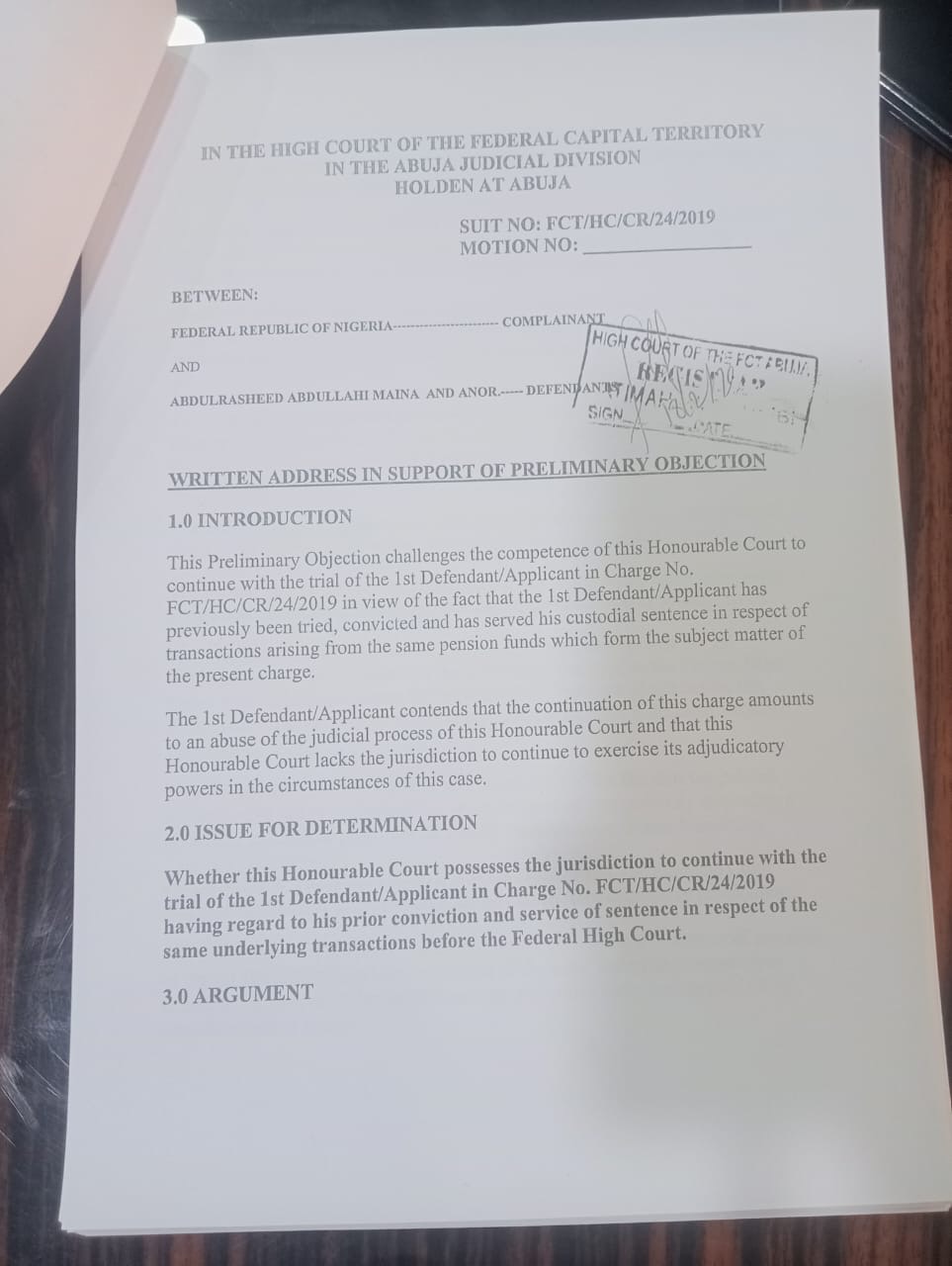
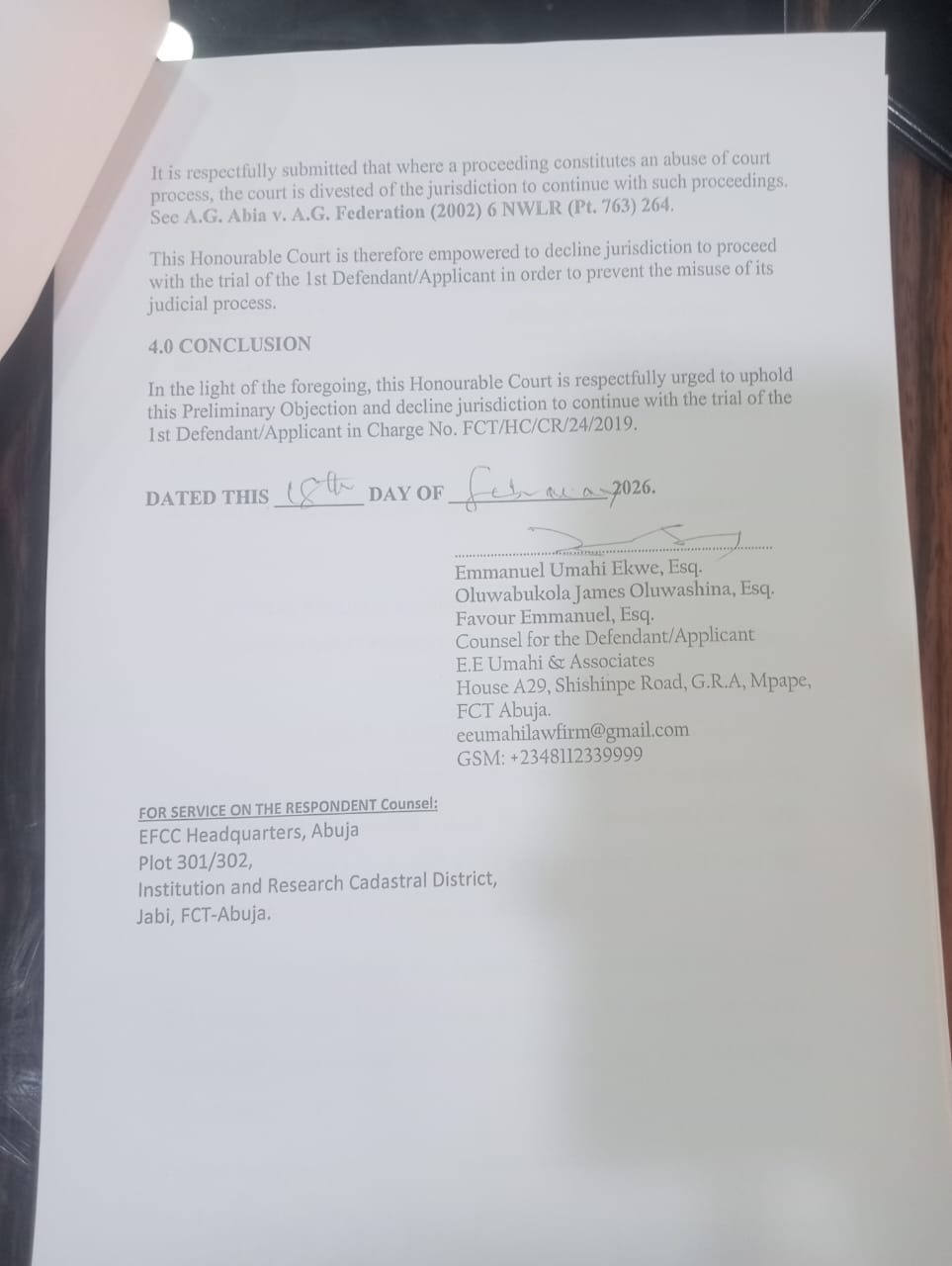
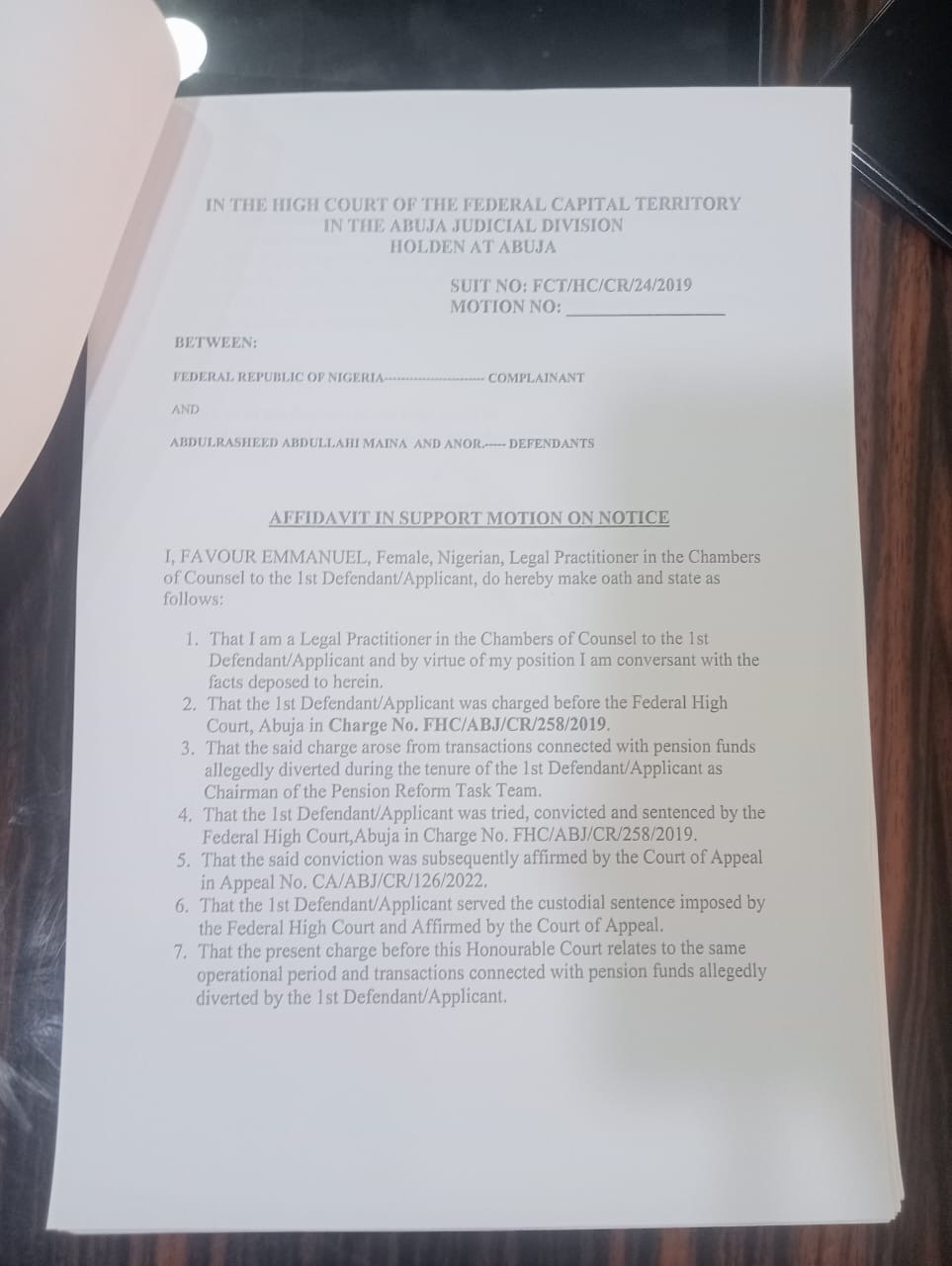
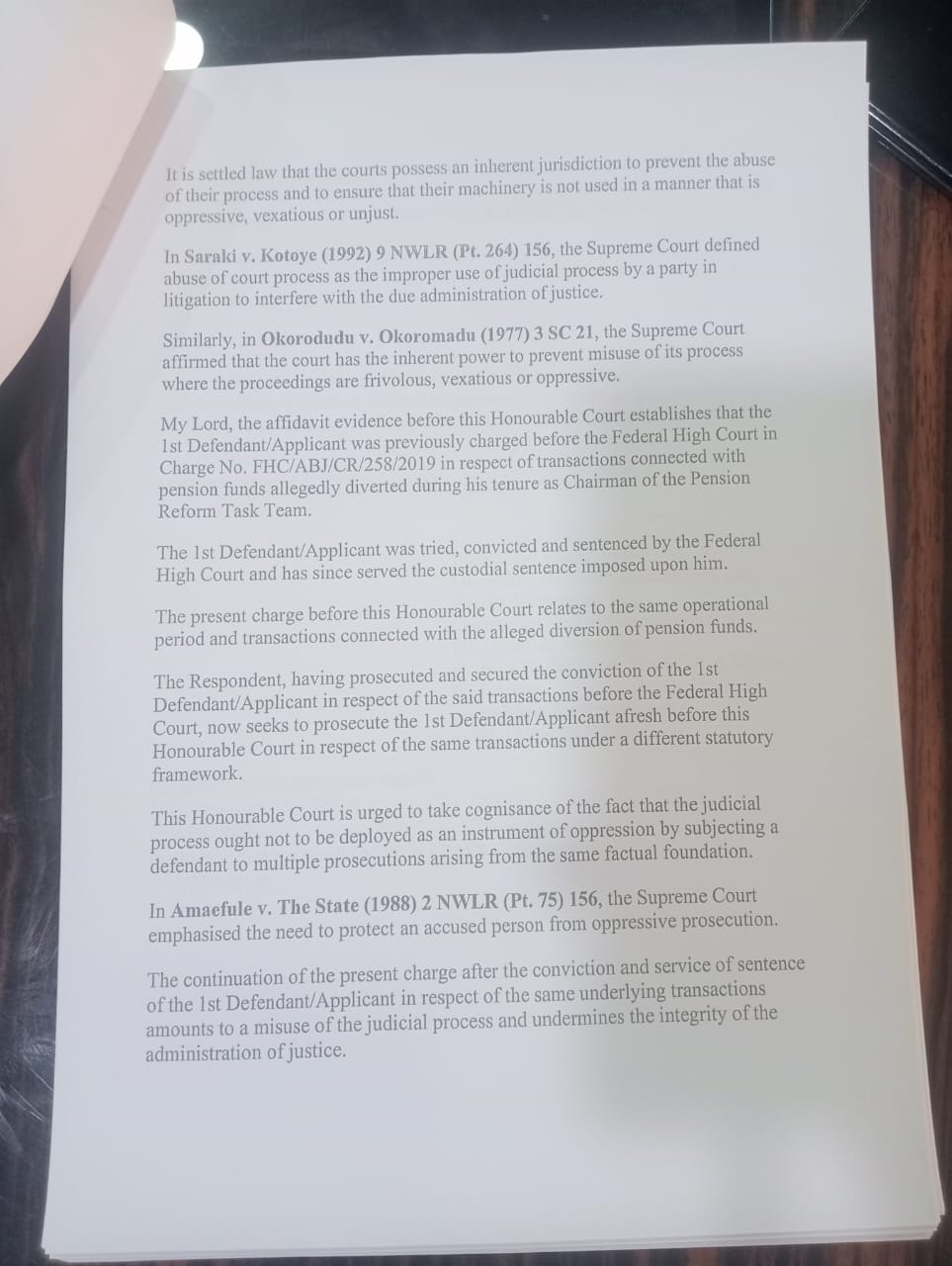

You must be logged in to post a comment Login